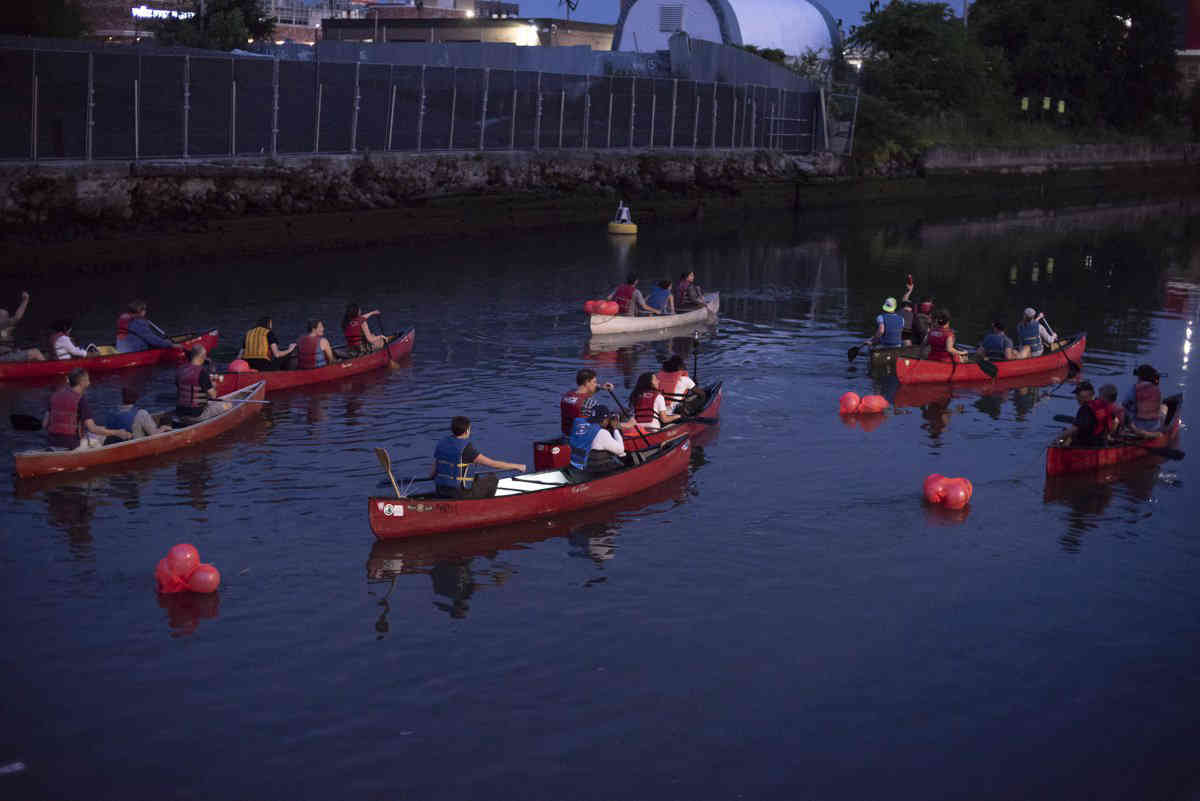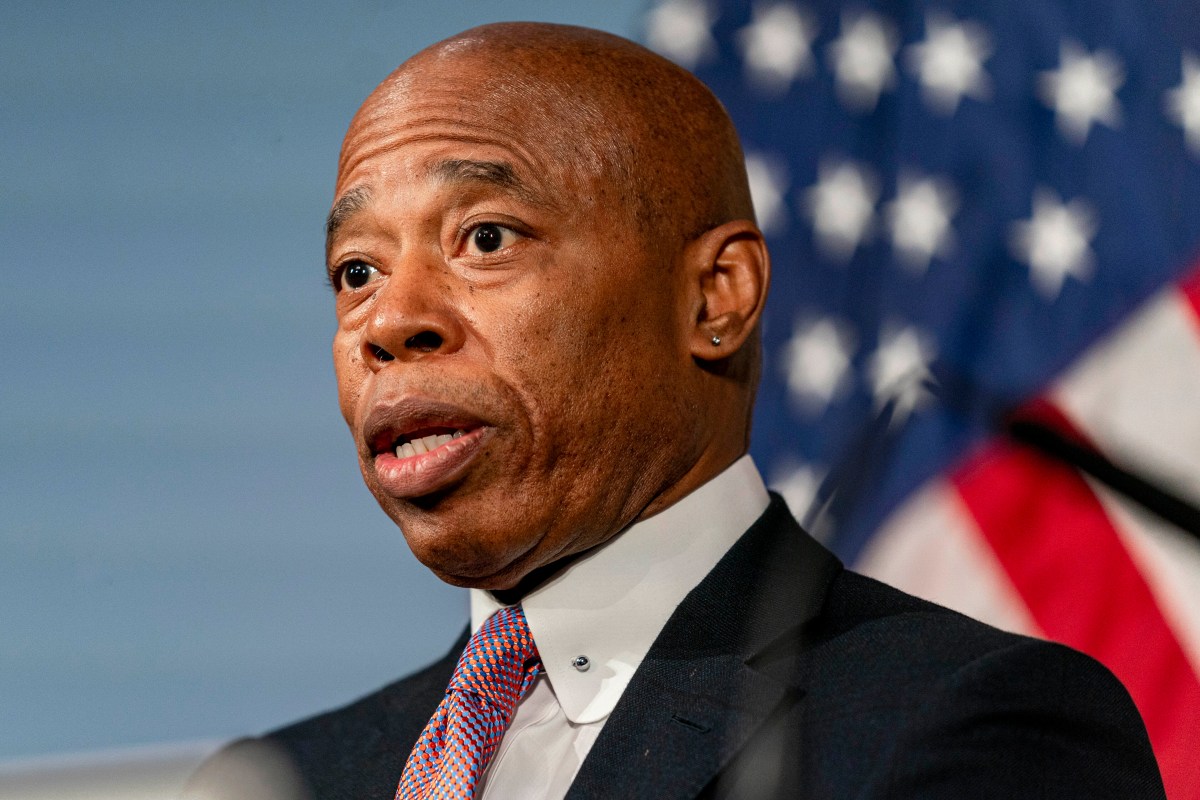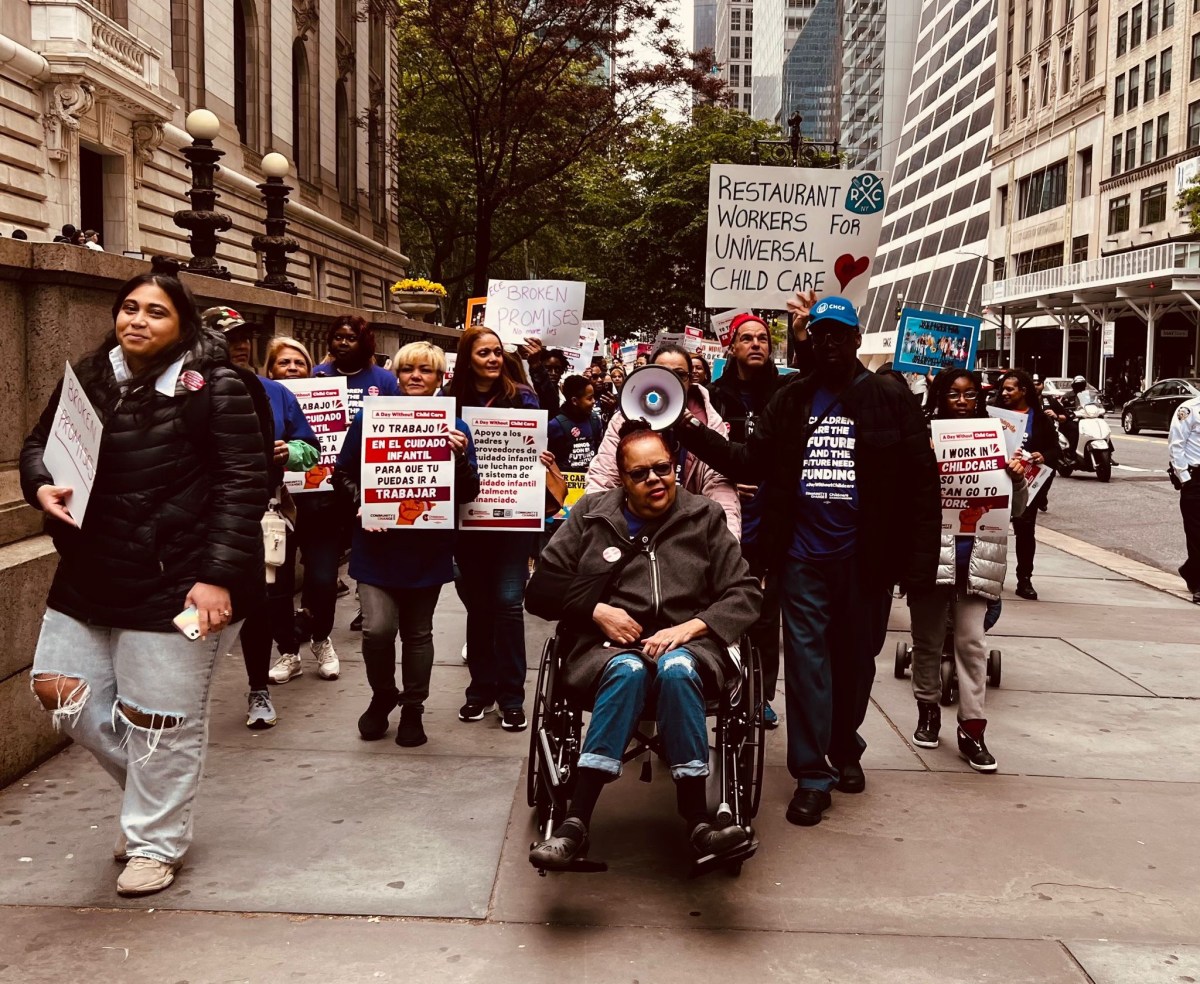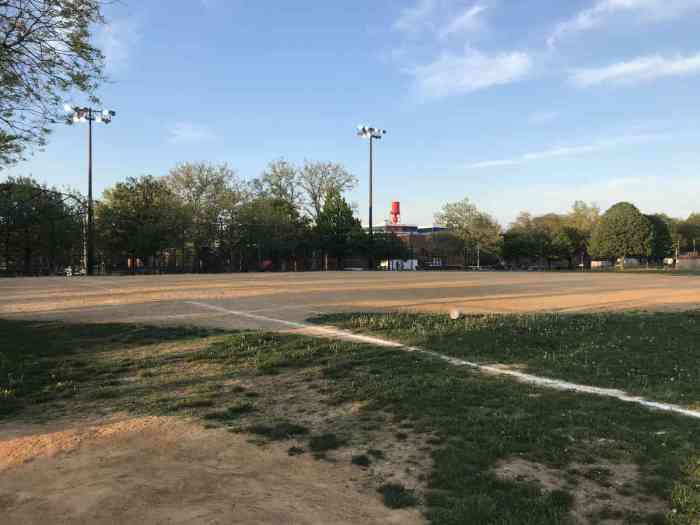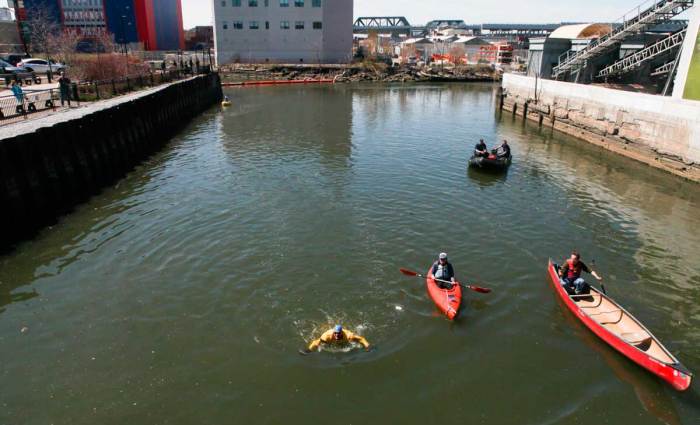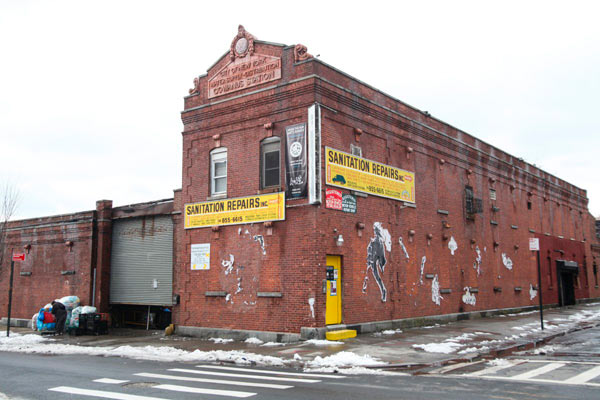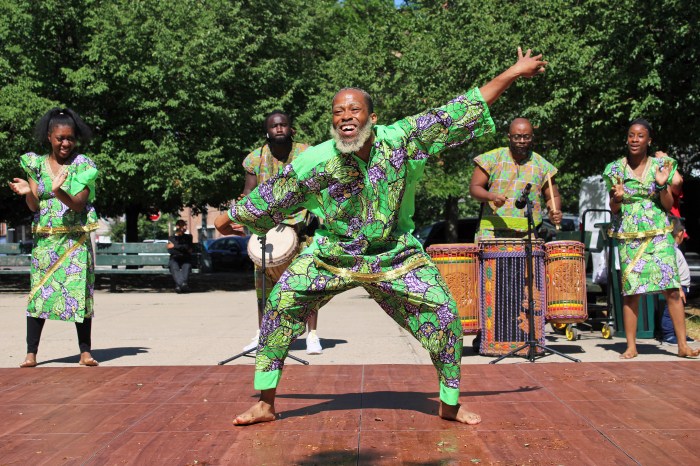Whatever floats your boat, it won’t be the Gowanus Canal!
Uncle Sam will ban canoeists and all other recreational boaters from the upper half of the Gowanus Canal come Nov. 1, as the federal Environmental Protection Agency officially starts its Superfund Cleanup of Brooklyn’s Nautical Purgatory next month, the agency’s project manager for the cleanse said Tuesday.
“No boating is going to be allowed during cleanup operations that begin in November — no boating, no canoeing,” said EPA’s Christos Tsiamis at a virtual meeting with the local watchdog group the Gowanus Canal Community Advisory Group on Oct. 27.
Barge-mounted excavators will start dredging the upper third of the canal beginning the week of Nov. 16, and Tsiamis said it will be too risky for smaller watercraft to share the noxious channel with heavy machinery.
“Canoeing and boating will be dangerous and interfering with our work,” the federal environmental engineer said.
The industrial waterway will be off-limits from its head at Butler Street all the way to the Ninth Street Bridge — 0.8 miles of its 1.8-mile length — and the closure will likely last for years as the feds launch the first of three cleanup phases, covering the stretch from the head down to the Third Street Bridge, which is set to wrap by July 2023.
The sweeping ban shocked a captain with the beloved local canoe club, the Gowanus Dredgers, who said officials went completely overboard.
“Wholesale closure for the next two and a half years to vessels below Third Street Bridge down to Ninth … is overbroad [sic], even draconian,” wrote Brad Vogel in the online hearing’s chat panel.
The boat club, founded in 1999, embarks on regular voyages into the polluted waters and organizes programming like canal-side movies and concerts. Recently, they drew headlines by facilitating a waterborne marriage proposal and hosting a drag queen opera performance to get out the vote for the presidential election.
Vogel said the founders chose the name “Dredgers” because they wanted the cleanup of the canal, more than a decade before Washington declared it a Superfund site.
“The Gowanus Dredgers were formed 21 years ago and the word ‘dredgers’ is in our name because of what we wanted to happen, so it’s very good to see that finally happening,” he said.
But, the Gowanusaur said the feds blindsided him with the sudden restrictions, having previously said they would only recommend against their maritime programming, not an outright ban.
“This is something new, because on Oct. 16 we were told for the first time, after thinking we’d be able to operate below Third Street Bridge … we were told that EPA strongly recommends against in-water programming, and now we’re being told 11 days later it is not allowed — that’s a significant change,” Vogel said.
He pleaded with officials to continue letting them access the filthy waters, floating the idea of limiting boating hours to times when contractors aren’t working on the canal.
“We certainly don’t want to get in the way of dredging, but we do think there’s a way that — especially on, say, weekends or evenings when the work is not actually being conducted — we’d like to work with you to find a way to tailor that to allow for more access for a longer period of time,” so Vogel.
Officials indicated they would be open to permitting some boating and events that coincide with work stoppages, but a lawyer for EPA noted that workers will be moving the gunk from the canal bed down the channel and transferring it to larger boats to be shipped to New Jersey, while also driving new sheet piles along the water’s edge south of the Third Street Bridge, making most of the inlet perilous for other vessels.
“We literally can’t let someone go on one of barges without hazardous OSHA training and so to allow people near those barges is an equally important regulatory concern,” said Brian Carr. “We will work with you, we will make this work.”
Tsiamis said that for now, the ban will stay and that EPA will see how the deployment of barges works before granting any exceptions.
“What I said stands right now. We will have to see the full deployment in there, then we can talk about it,” he said. “If they are deployed in such a way that people in canoes have to snake through equipment, you don’t want to put your people in that situation.”


